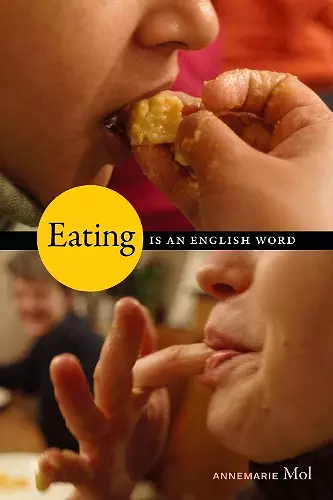Eating Is an English Word
Format:Hardback
Publisher:Duke University Press
Published:4th Oct '24
£83.00
Supplier delay - available to order, but may take longer than usual.
This hardback is available in another edition too:
- Paperback£19.99(9781478030867)

Eating is generally understood as a human need that people satisfy in diverse ways. Eating, however, is also an English word. Other languages, using other words, order reality differently: they may fuse eating with breathing, or distinguish chupar from comer. Anthropologists flag such differences by leaving a few of their words untranslated, but what language do we think in? This isn’t necessarily English. We may be linguistically closer to those whose practices we study: them. Against this background, Eating Is an English Word argues that social scientists should let go of the dream of universal concepts. Our analytical terms had better vary. Annemarie Mol and her coauthors exemplify this in a series of material semiotic inquiries into eating practices. They employ terms like lekker, tasting with fingers, chupar, schmecka, gustar, and settling on an okay meal to explore appreciative modes of valuing. Welcome, then, to spirited stories about satisfied stomachs, love for a lamb, juicy fruit treats, and companionable lunches and dinners.
“To eat. Comer. Lekker. Tasty. Schmecka. Gustar. Don’t reach for your dictionary to find equivalencies. Instead, read and digest this engaging book to appreciate how different wording points to different worlding around food and eating! Annemarie Mol and her multilingual collaborators challenge us all to confront the analytical limits of English’s hegemony as ‘our’ academic language.” -- Heather Paxson, editor of * Eating beside Ourselves: Thresholds of Foods and Bodies *
“Eating Is an English Word offers a series of rich ethnographic contributions that challenge the implicit understanding of matters embedded in the English world: the body that eats; the enjoyment it brings; the practices and situations involved. At the same time, it illuminates significant assumptions related to linguistic and conceptual habits more broadly.” -- Margaret J. Wiener, Associate Professor of Anthropology, University of North Carolina at Chapel Hill
ISBN: 9781478026624
Dimensions: unknown
Weight: 454g
200 pages